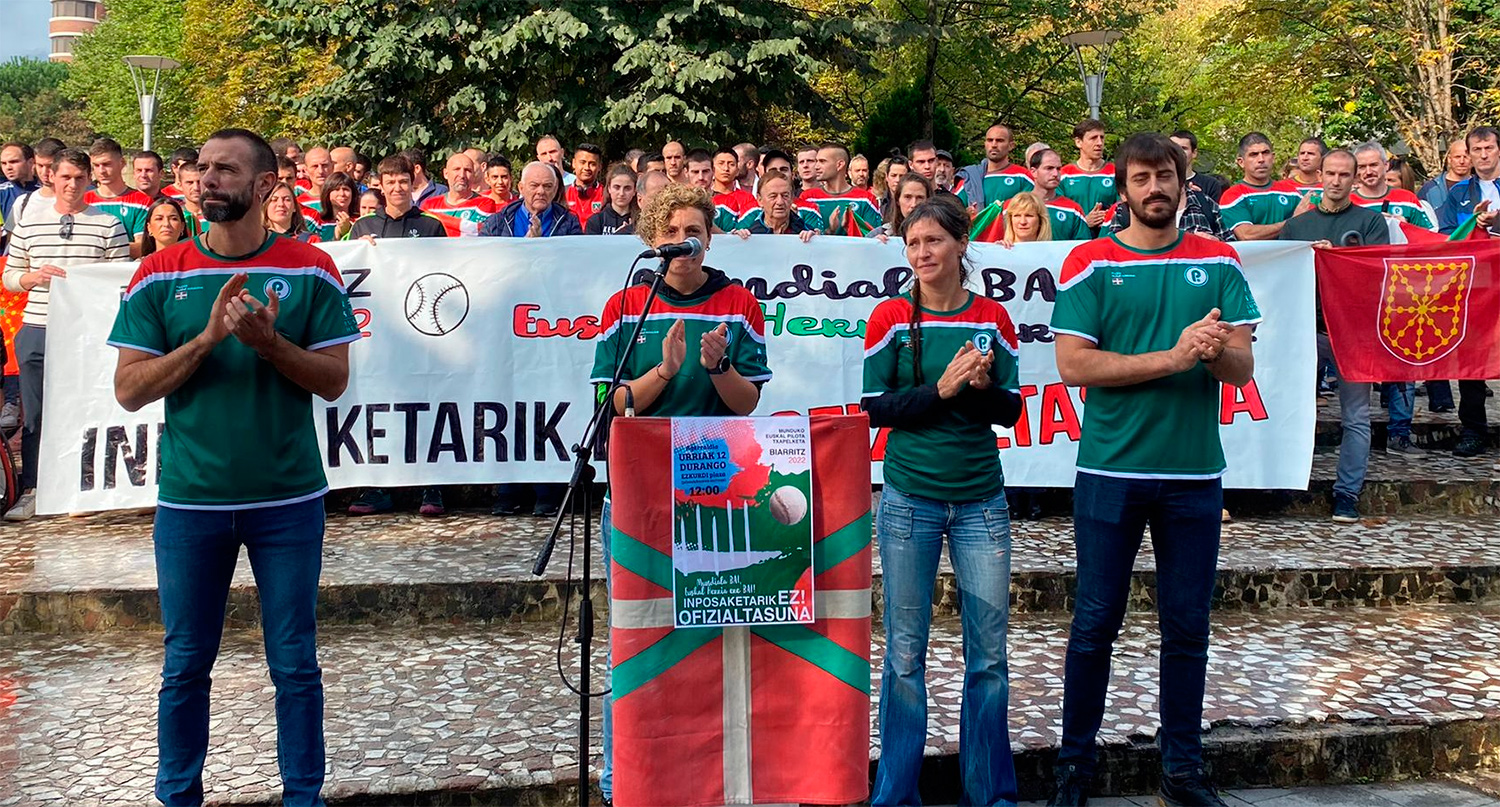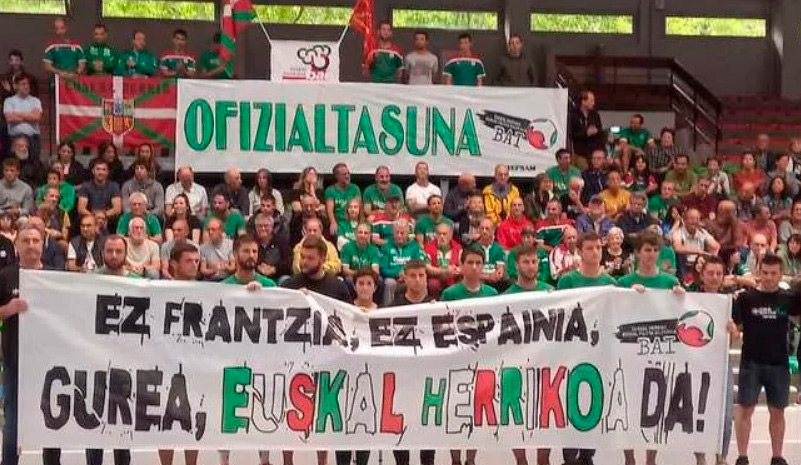"I've had hard times but I've rejected my life."
- It has been pelotari for thirty-seven years, an article that has still been portrayed. They say it, and they don't know it for free or in vain, because when you see a ball, you can tell if Martina Ursuegi-Huguenard has done it. Those of you who know know, Martin doesn't have to name the ball, he's signed a fine dot to sew the leather.
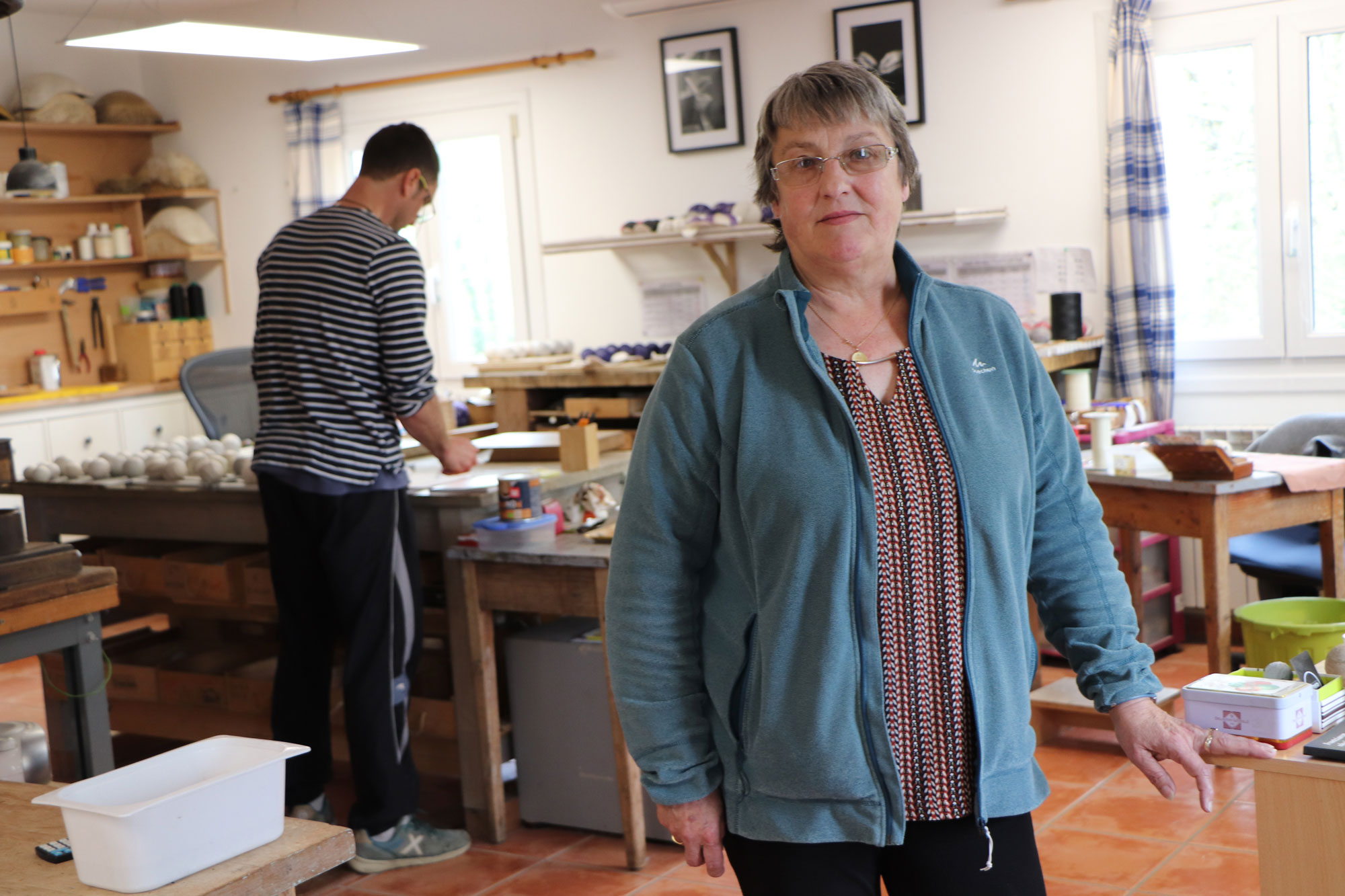
Pilotagile artisau, eta artista. Ez alferretan du ezagun berak josi pilotak, bateko puntu eta bertzeko hari. Ez du unibertsitate ikasketarik egin, baina erreusitu du bizia. Arrakasta lortu du, Jean Batitta Elizanbururen harako hura bere moldera egina: “Badut andrea, badut semea, badut alaba ere nik; osasun ona batetik, ontasun aski bertzetik, zer behar dut gehiago nik?”. Halaxe Martinak.
How did the ball start to sew?I left school in 17
years and got into a house to take care of children — there were three children — and also house and food. At that time, the owner of the house built a machine to make the ball. He worked in Turbomeca, in the aircraft usine, in Nos (Landas) and in Angelu. He had a big stand and he was walking on the left right, in Paris and in others, and he had enough, but yet he had to do with the things he wanted to film, and he's done that ball making machine. That's what my business is all about, because when kids grew up, they didn't need me in that house, but my boss asked me if I wanted to work in the world of the ball. That this work would be special. And he said yes. “I’m going to try!” I knew the world of the ball, I had a wolf, I played a little ball and I followed the matches. But, moreover, I have all learnt from the start!
And when you started making a ball, remember that first day?
Oh, so! Because I have all the dreams and everything I have done! Good dreams and bad dreams, both. I wanted to do my job well. I liked sewing and all that, but I didn't know how to do the ball, and I wanted my job to do well and I was thinking at night. “So I have to... I have to.” Everything comes at night! And so my boss taught me how to sew the ball, the xixilka. The same boss studied with a woman, and I was drawn to repulsion.
Why did I have to do the replacement?The boss
was silent, didn't want to attract the thing, "this and I do", no, it was quiet. First the boss taught me, and then seeing that he managed to sew the ball, he brought a woman, not telling me who she was. But because things know, I knew that his wife was a pelotari in San Juan de Luz, who made balls by hand. My father was dedicated to cleaning the vegetable garden, and Donibane was going right to that woman's house. I know who it was! And he also discovered who I was! Because the boss didn't mean anything to anyone, but I don't know what not, because I kept all the secrets. I've done it in my life, when I took care of children in that house, and the same thing here.
Who was the woman who taught him how to sew the ball?
It was a cuplé, a couple, no children, no sequences. It was Mendiaga and the lords made the ball. Her husband was riding balls and she sews. So they spent their whole lives in San Juan de Luz, but I think in Hazparn there was also Mendiaga. I'm not sure. They made hand balls, they were famous. We started making pallets and fair play balls, and one day my boss proposed to buy their secret from the Mendiaga. You have to know how to make a ball, there's a bit of a secret, not too big, but there are things that don't count. It's a secret to making the ball, and everyone has their own.
As everyone is yours, you also have yours... I don't know what you can count.
Before, there were a lot of pelotaris and they have not passed the secret, they have taken it to the hole! There are people who have bought the secret to make the ball, they have paid, because people don't give it that way! But that's not just a thing of the world of the ball, there's a lot of that! And it's Sunday! Teaching someone, transmission, and then bringing new things about it, is big. “I have learned with this, but I have also brought a little.” So things get better. But Ainitz doesn't think the same way, she hasn't passed to me, nor kept the secret. It's Sunday!
Secrets, everyone yours. And within the secrets that you can tell, what are the secrets that allow us to make a good ball? To
start with, you need a good working material and then you have to see how the ball is assembled, what ball to do. If you have a lot of class: paddle, play clean, hand to hand, each has more classes: children, fry, teens, youth, adults… And the ball has its weight and all the elements! Rubber has its weight, wool also, skins… Each has its weight and the whole ball has its own weight. In the middle, you do whatever you want. If you want to make the ball soft, you throw less rubber and if you want to do quick by pulling more. But the material does many times. If it's not good, it's not good. When you send ten kilos of wool, you don't know how it will come. Sometimes, well, others don't. Look, we who do the ball are in the middle: between the material and the players. We are at the centre and it is difficult, and yet we must retain that half!
.jpg)
"With the camera my boss watched how long the ball was sewing... And there I grew up. I've been caught veins and quite a bit!
Do you try the balls?
We give the pelotaris to rehearse and they call one or the other: “Oh, clicking is not enough!” the sound, because it means. “In the wall it does not come out… In the sole it does not explode…”. Making the ball is not easy. We start the gallbladder, because it means, quiet. At first I worked half in that house, and on the other hand, I started sewing the ball. Six months or the year I kept working on two jobs and then, seeing that we were doing good balls and that the work was increasing, I left the house and I continued to do the ball. From the beginning I want to do the ball. I really like the workforce.
You wanted to do the ball, as you said. And watch matches?
Yes, Olaizola-and all of them, they're fantastic. And Ainitz Irujo, who he wanted, has stayed, because it was mandatory.
When you see the game, do you see the game of the pelotaris or how the ball runs?
Kar, kar… how the ball runs, the vitality of the ball, the bomb… We teach ourselves to take all the balls in the same way, but there is always something more intense, faster, this has a bomb, the other has a kind of click… And yet, there is a feeling of the players taking and playing the ball: “This ball doesn’t feel good in my hands!” It's a feeling! Players say so, they have to feel the ball! The click, the bomb -- they're the first critics, but then you have a feeling of your hands, and that's what the skin does. There are different skins, some succulents, some harder ones, and there's the difference of the ball, all in that feeling. The player must feel the ball.
This is the story of a very demanding pelotari who knows how to recognize.
No, no. The children have come to us at the atelier and we give them four balls: “You choose!” They go through blueprints, they touch blueprints and they say, “I feel good!” It's warmth, or I don't know, but they feel it. And the skin is what it looks like. The goat is the skin we give to the ball. The one on the palm of the hand is warmer, the one on the left wall is harder, but it must maintain its warmth. And if the fur doesn't work well, we can't do a good job. And the players are there, and they come with the stick! Ja, ja…
You have the work of the craftsman, there is the pelotari arte.El it does not do so and so, there is a process, there is
a battle with wool, with the skin… I have spent thirty-seven years making the ball, and I have had the battle, especially at the beginning: I did not know the skin, and you have to learn to sew, you have to know how to throw the skin… Sometimes, when the skin is quick. On the contrary, it will come very well and then you need to know how much to throw and how much not. If you don't do the job right, the balls are hated. That also hurts. There is not always a lack of material, it can also be mine, because that day I may have taken five balls but my spirit did not work and you have to focus on the work after the ball. You have to look at the ball, you don't have to raise your head too much! Ja, ja…
There are other companies that do ball in Euskal
Herria… Yes, everyone does theirs. Here [above Senpere] there is biga, you have maceration in Landeta and there is more in the South. Before Oraiko Eskutik, I worked another day in Senpere at the Punpa company. I first worked with my old boss [Mendiaga] for 20 years. Then the company got the new boss and I've spent ten years with him. And after ten years he has driven me out.
Did it give you away? From the tape?
You have to know how to bring the company, know how to be with the workers and know how to put money in. It's not worth working if you don't put money in. And that former boss has ignored the money. It is a barbarity that you have a company! I was the oldest worker, the first one, and he kicked me out. My company has been tested for expelling me. He has filmed how I worked, there was a chamber to control the work of the workers, and he watched how much time I spent sewing the ball… And there I grew up. They've taken my veins and enough! I've done it. I've talked to the doctor to share the work. There are seven to eight years.
.jpg)
“This ball doesn’t feel good in my hands!” It's a feeling! Players say so, they have to feel the ball! The click, the bomb -- they're the first critics, but then you have a feeling of your hands, and that's what the skin does."
You missed it...
Yes, it wasn't good, no. I sat down, I didn't want any more balls, I didn't want to see. I didn't look at any ball game. My son was also playing the ball, but I wasn't going to see, upset. And I've come out of that hole, with the sea.
With the sea?
Yes. When time is strong, the sea is angry, and I'd like to. My husband, on the other hand, did me well with everything he wanted, and said to him: “Do you take me to the sea?” And he would take the car and drive me from Donibane [Lohizune] to Hendaia, always on the coast. And the steak of the force of the sea was coming out of the car, and thanks to that force that the sea has given me, I have come out of the hole. I love the sea, because you see that water violently hitting the rocks. Your strength! That's what I've come out of. I didn't want to make more balls. I'd rather make a menaia, do something at home.
But for the past seven years, you've been ball again.
Yes, I was at home and one day the phone. At that time it didn't seem to me, but my husband: “To, Martina, it’s yours!” The phone was Ellande [Alfaro] from the Workshop of the Hand. I knew I was doing the ball, he told me we had to talk. And so our relationship has been shared. And you know what I thought, what did I feel at the time?... “Oh, I’ll do it!” I didn't want to share the ball with my sage, pass someone I wanted. There I felt: “Oh, the moment is the present!” And so on.
And this is how he made his last journey, these seven years, until he retired.
Yes. Elland and I saw each other, we talked. I didn't have machines, I did everything by hand. One day he had a question, thirty balls. They wanted to know at what price we could work. We do the calculations and we issue our currency. We didn't think they were going to take it, but they took it! We started making clean, hand-held game balls, but we also tried as facts. That has happened. I thank Ellande [Alfaro] very much, but he has also thanked me very much. We have made our balls little by little good! Elland welcomed me with him and seven years ago I was with him. And now, I've left! Ja, ja…
He has conveyed his wisdom or knowledge, as he wanted.
Yes, of course I have passed it to Ellande, and to the person who has taken my place. I had to have happened and I've done it, and I've been happy. My work has served. I left 17-year-old school, I didn't have a diploma, but I've still rejected my life. I've had hard times, but I feel satisfied, because I've reused my life: I've reused my work and I've reused my family. I have a good husband and I have two children, four ttipi children and my children have also reused their lives. I'm quiet. I've left the job, but the door is not desperate. Elland persuaded me: “Again you have the Artio Adixkide / You have the door open / Our way is not over / It is a Birunga alone / You cannot forget / Love of colleagues / Good times thanks to you / Martina of our hand”.
Irungo Landetxa auzoko pala txapelketa mistoan, hogei bikotetik bakarra da emakumeek osatua, 40 lagunetik bi baino ez dira emakumeak: Idoia Karrera eta Loiola Zuazu. Lehiaz, txapelketa misto eta ez mistoen arteko aldeez eta joko-mailaz mintzatu gara haiekin. "Emakumeok... [+]
Lehengai anitzekin papera egitea dute urteroko erronka Tolosako Lanbide Heziketako Ikastetxe Integratuko kimika industrialeko ikasleek: platano azalekin, orburuekin, lastoarekin, iratzearekin nahiz bakero zaharrekin egin dituzte probak azken urteotan. Aurtengoan, pilota... [+]
The achievement of the Euskadi Selection has undoubtedly been a historic achievement. But if you stick to that, for many Basques – I too, because I am Navarro – it will be the darkest and saddest day. After enjoying the joy and warmth of the first few days, let's go back to... [+]
After so many years of struggle for it, 34 years, precisely, we are very pleased with the decision taken a few days ago, on 28 December, Innocent Day, in Pamplona, at the assembly organized by the International Federation of Basque Ball. Well, from now on we will have the... [+]
I had bought it for some time and read it above, but I have only recently been able to attend with the attention I wanted to the book Joxemari Iriondo Pilota eta Bertsoak. I have found old acquaintances and I have been raised with some of the struggles, lost and winnings that... [+]









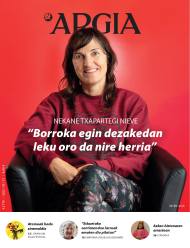


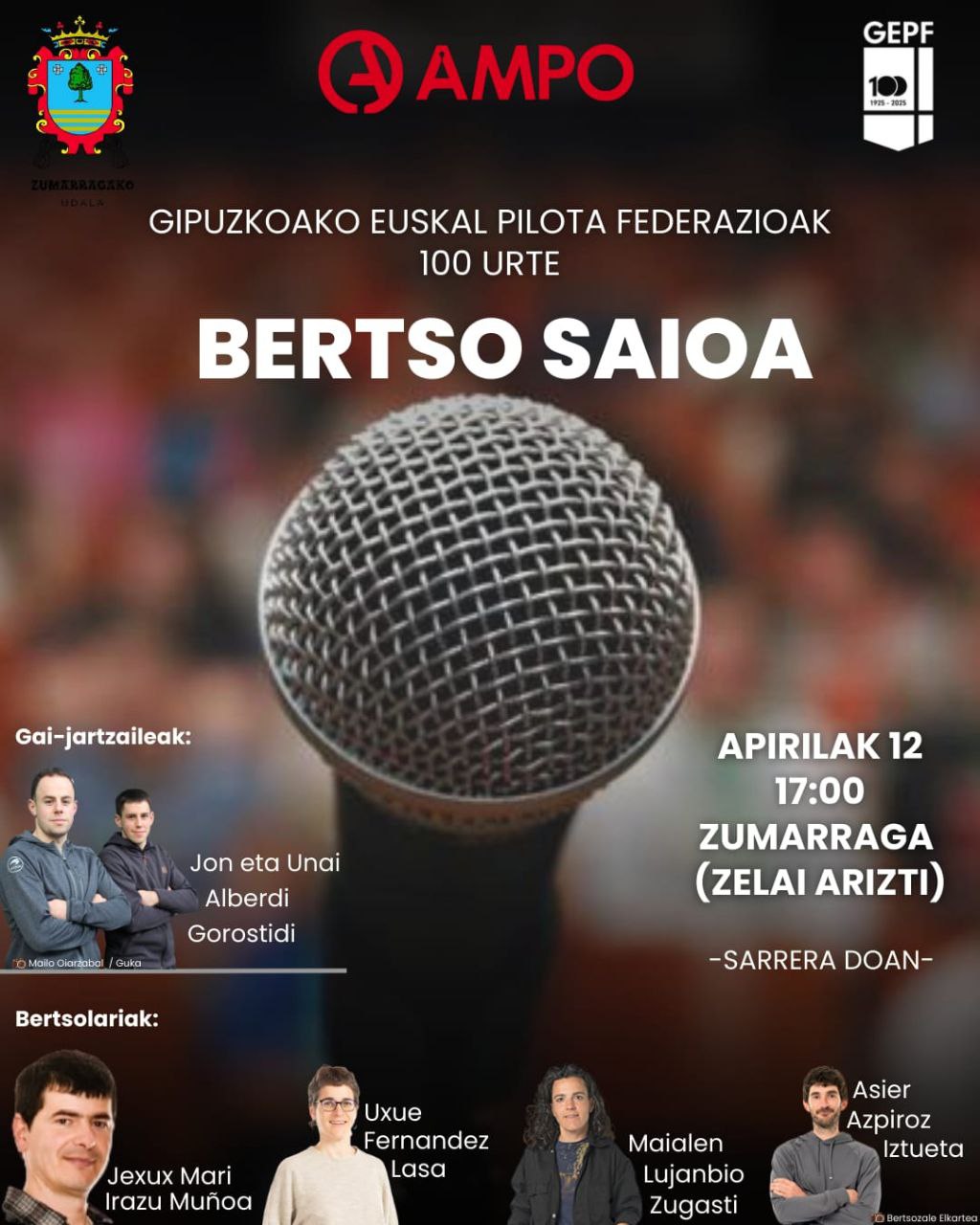

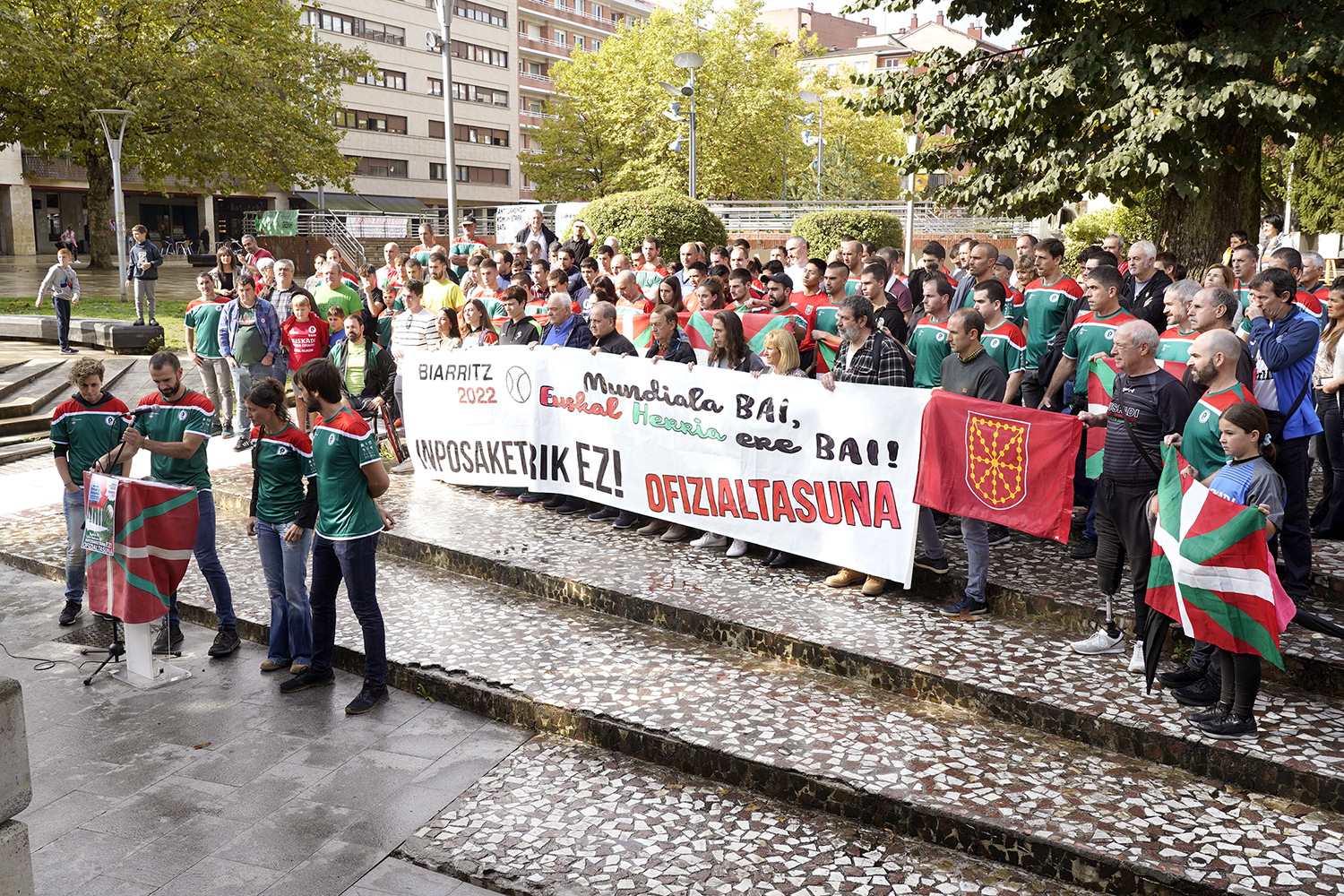
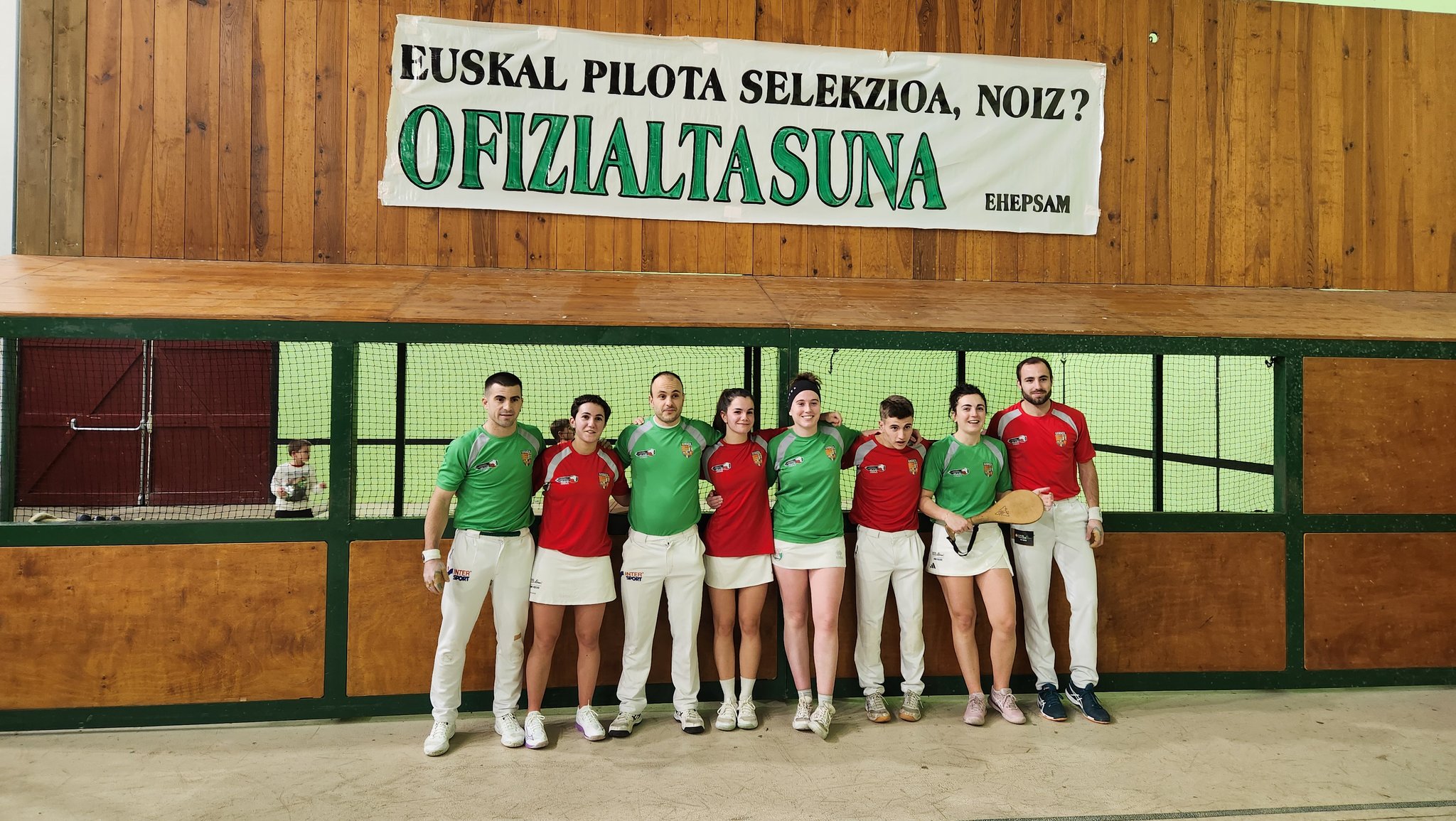
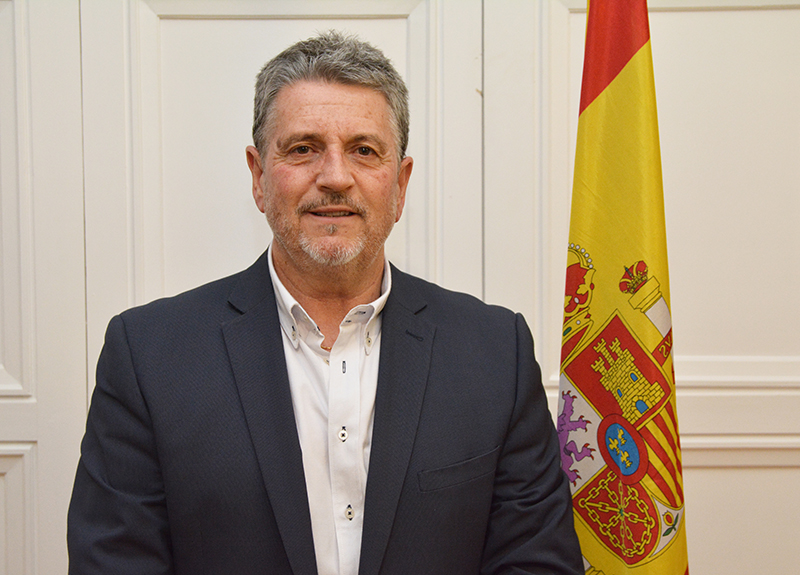
.jpg)
